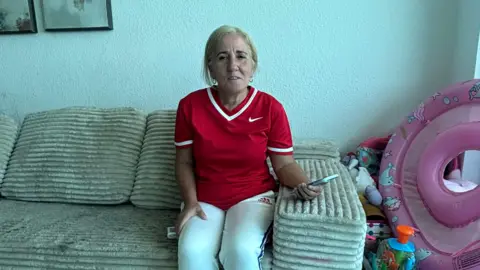The Final Days of 'Alligator Alcatraz': A Troubled Immigration Center
When her son was taken into immigration custody, Yaneisy Fernandez feared the worst. Then she got a call from him inside 'Alligator Alcatraz'.
We had no idea where he was until he called us, Yaneisy told the BBC. He said, 'mom, they took me to the facility of the crocodiles.' That's how he put it. The temporary immigration detention centre built in Florida's Everglades has quickly become a polarising symbol of President Donald Trump's immigration policy.
Now, just two months after it opened, the Department of Homeland Security (DHS) has announced the facility's closure, complying with a judge's orders. The process is already underway, with border tsar Tom Homan confirming that only about 50% of the detainees remain.
The BBC spoke to the families of inmates who were moved in the past month, revealing a troubling narrative about their loved ones' experiences in a system that seems to leave them vulnerable. Yaneisy's son Michael Borrego Fernandez is among those alleging inadequate medical treatment while detained. He has been the focus of an ongoing lawsuit claiming that inmates lack access to their lawyers.
Constructed in a mere eight days, the South Florida Detention Facility, known colloquially as 'Alligator Alcatraz', has faced criticism for its treatment of detainees. Designed to hold around 3,000 individuals, it has never reached full capacity, despite a record-high of 59,000 individuals in immigration detention nationwide as of mid-August.
This facility has sparked protests and controversy as it embodies the ongoing debates surrounding Trump's immigration policies. While some view it as a necessary measure to enforce immigration laws, others decry the actions taken against individuals, often led to a severe lack of medical care and humane treatment.
The DHS insists that detainees receive proper medical care, while testimony from families suggests otherwise, illustrating the devastating effects of the current immigration system on vulnerable individuals and their families.
As 'Alligator Alcatraz' prepares to shut down, the spotlight remains on the treatment of immigrants in the U.S. detention system, reflecting broader social and political divides regarding immigration enforcement.




















